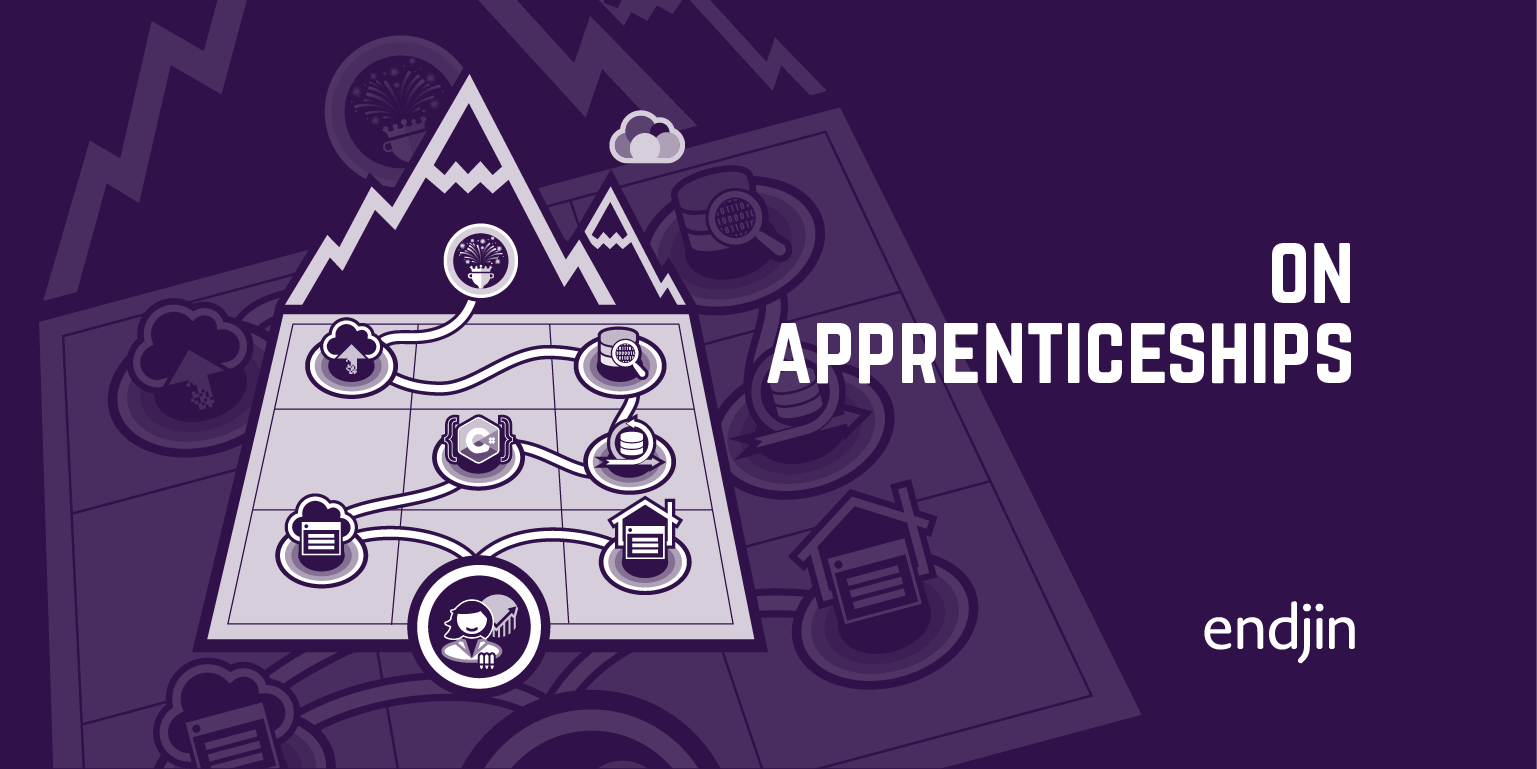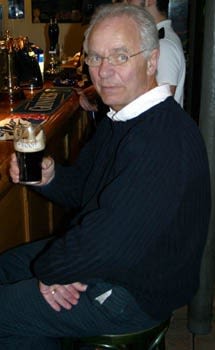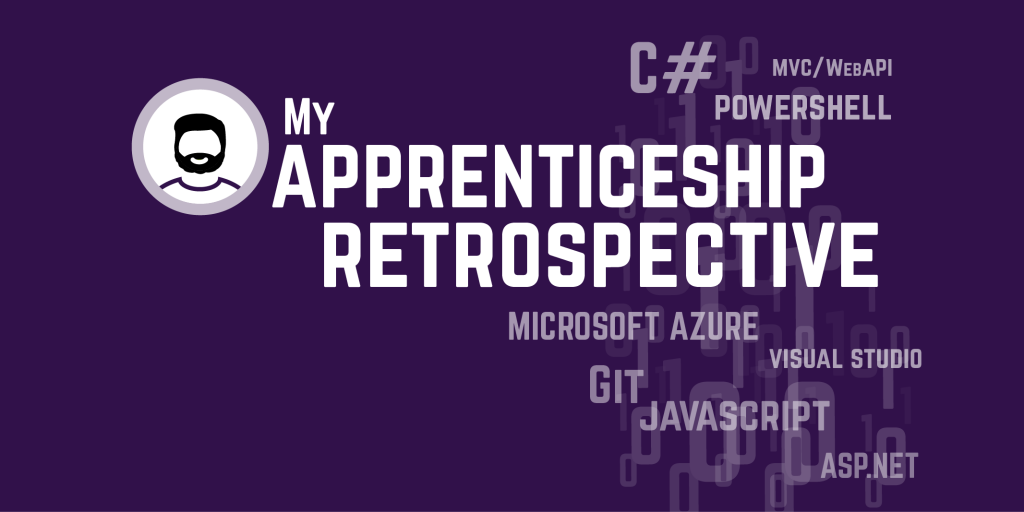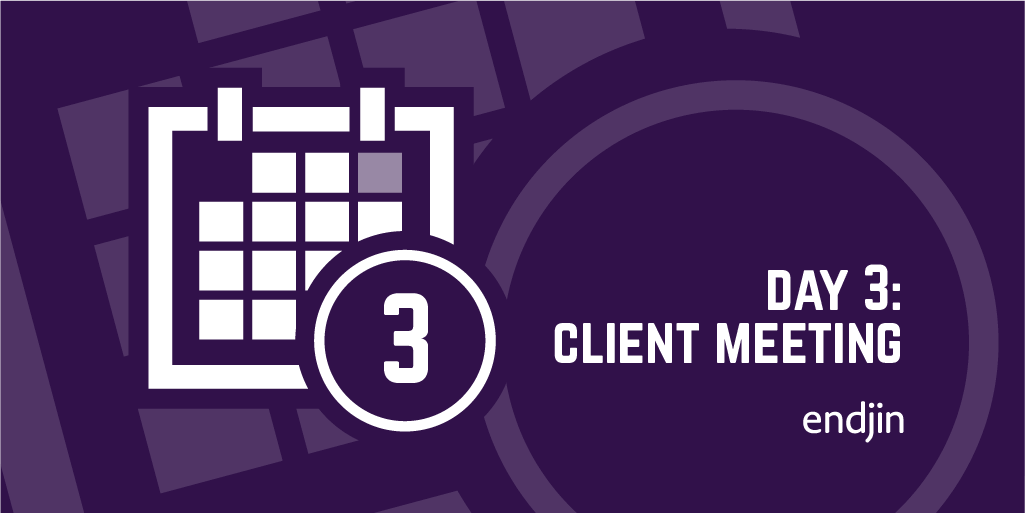On Apprenticeships

I've always been surprised by the number of people within the technology sector, in particular the software development industry who don't have a traditional computer science background. Some of the most talented software developers I've worked with have university backgrounds in chemistry, astrophysics, geography, marine biology, just not Computer Science, and two of the most talented technologists I know bypassed university system all together in favour of gaining real world experience in the workplace.
I would like to say that my career was carefully planned and immaculately executed – but in truth I owe much to serendipity; I couldn't decide what degree to apply for, so handed my sister the UCAS course directory and said "You know me better than anyone, can you pick something I'd like?". She selected "Intelligent Systems BSc" at Reading University a split course that combined Computer Science, Cybernetics and Psychology; it looked fascinating, so I applied and was given an unconditional offer.
Shortly after starting the course, I really began to struggle; rather than being a true split course which selectively took 1/3 of the modules from the Computer Science, Cybernetics and Psychology course it was the full syllabus of all 3 courses; the workload was immense; the 1st year Computer Science modules were a mixture of Delphi (good) and assembler (not good), Cybernetics had turned out to be mainly about Engineering Mathematics and its applications (feedback loops and even that was taught badly – the class even revolted and had one of the lecturers replaced), only Psychology was interesting, but I became increasingly disengaged with the course – it just wasn't stimulating – I was overworked, stressed out, but becoming increasingly aware I was bored! Then suddenly my Father became seriously ill and I had to split my time between home and university; I ended up failing my 1st year exams and had to retake them over the summer.
Those few weeks were a time of intense self-reflection and soul-searching – I came to realise that even if I passed my resits I would continue to struggle in the following two years and that even if I managed to make it to Graduation Day, I would just be waving a bit of paper along with 200 other people within the department; only their bits of paper would be much better than mine. I also was starting to believe, based on the course content that those bits of paper were totally irrelevant to the modern business world (which was buzzing with terms like "internet" and "web") and that for me to actually get a job, I was going to need to differentiate myself from those other paper-waving graduates and that would need to happen by exploring what else the university had to offer other than what was on the curriculum.
I passed my resits and dropped Computer Science and Cybernetics and focused on Psychology. Suddenly my workload became manageable, I joined the student newspaper as a co-editor as I was seriously starting to consider design or journalism as a career.
My 2nd year at university was the polar opposite to the 1st; I was enjoying the Psychology course and working on the paper was a great creative outlet; at the end of the summer term someone mentioned seeing a job advert for a web designer for a university department. I was really excited – it could be the perfect summer job – combining my love of design and computers – I had some web experience at college and had kept tinkering throughout university. I spent days getting a portfolio together and creating an example site for the interview. The interview went well, so I was devastated when I received an email the next day telling me that I wasn't quite what they were looking for. I was utterly crestfallen as I had pinned all my hopes on that job.
Then the first instance of serendipity happened; the person they had given the job suddenly decided that he actually wanted to go travelling over the summer; so I received a phone call asking me if I was still interested in the position. Oh yes.
Then the second instance of serendipity happened; the day before I started, the department's Network / IT Manager resigned and walked out. There was pandemonium on my first day – the department was highly technical – with over 60 PCs, financial feeds and racks of servers and now they didn't have anyone to manage them. I simply said "I can look after them until you find a replacement – it's not difficult – they're only computers." It took them about 6 months to find a replacement – so on my first day I went from Web Designer to Network Manager. I was totally out of my depth but for the first time ever I felt fully engaged and developed a unquenchable thirst to learn everything I could to support the systems, because it was now my responsibility.
Then a few weeks in I was asked to create a new database connection for one of the teaching staff. I did as much research as I could, searched the web for any info – but I couldn't find anything that helped. Humbly, I had to turn around to my boss and say "I don't know what to do. Is there anyone I can ask for help?". Having to admit I was stuck was a very hard thing to do.
She pondered a bit and then said:
"There was this old retired guy called Bill, he used to help out a bit, but he left a few months ago to have his hip replaced. You could give him a call."
So I did. I explained who I was and what I needed and he politely informed me that his lunch had just been served by his wife and he would call me back once he was finished. Then my boss's phone rang.
"Hello Bill. No, no – that's Howard – he's helping us out over the summer."
Bill phoned me back a few minutes later:
"I'm sorry about that, I thought you were one of the great unwashed trying to hack the department's systems. I'm free tomorrow if you want some help?" and that was my introduction to the wonderful Bill Widdis.
The next day Bill arrived and I was quite surprised; it turned out he wasn't just an "old retired guy", he had a very successful career working for the London Stock Exchange and had retired just a few years previously "to concentrate on his golf". We got on instantly. While we worked together to solve the problem, Bill filled me in on some of his history and the history of the department. At the end of a very enjoyable afternoon troubleshooting, we cracked it; Bill leant back in his chair with a very satisfied smile on his face, which suddenly vanished when he realised that he had fulfilled his duty.
"Is there anything else you need a hand with?"
"Oh god, yes" I said, thankfully "I think there's a few issues with the Exchange server and they want me to take a look at making some changes to the student records system. I don't know where to start". And that was when my apprenticeship with Bill began.
Over the next year, Bill spent a lot time working with me, he taught me how to code (in a way that actually made sense to me, something my course tutors had never managed), how to test my code, how to use version control, how to deploy, how to manage my time, do estimates, identify and manage risk, create a project plan, manage end users, how to do troubleshooting via root cause analysis and most importantly how you can get immense satisfaction and gratification out of solving problems with code. Bill had a lifetime's experience in the IT Industry – he had learnt everything the hard way, by doing it. He had been part of big successes and big failures – most notably Project Taurus, had learnt the lessons from them and fortunately for me, was happy to pass on those insights.
Bill gave me the real-world skills and knowledge that the university was incapable of doing. When I finally graduated and was waving a bit of paper what was not as good as all the other people's, it didn't matter because I now had something much more valuable - a year's industry experience and some of the skills and knowledge of an industry veteran. The passion for software development that Bill ignited was what led to me being offered a job at a small company called OS-Integration (that would one day become Conchango, then EMC Consulting) and I was then fortunate enough to work with a series of great mentors who were able to constructively channel the passion and enthusiasm I had and also pass on the benefits of their own experiences.
In the last couple of years I've been doing little bits of altruistic work: I helped build a woodland classroom for The Sustainability Centre, I started a company with my sister, called benchpeg – which was founded to help my sister's industry, the Jewellery Trade, specifically to help graduates keep informed (graduating and going home, can be an isolating experience) and get their first job (as my sister's experiences getting her first industry job was quite horrific and we wanted to prevent other people having to tread the same path).
For the last two years I've been invited to speak at "Getting Started" - The Goldsmiths' Company annual week-long programme for recent UK graduates of precious metal courses and have spoken about how small businesses can use technology. I've also been doing some pro-bono consulting for The Goldsmith's Centre - a new £17.5 million investment to build a new centre to provide vocational training for the jewellery industry via The Goldsmiths' Institute and the Goldsmiths' Company Apprenticeship Scheme. It's been fascinating gaining a small insight into an organisation that has been running an apprenticeship scheme since 1334 and their vision for what such a scheme should look like in the 21st Century.
Last year, a decade after graduating, I was thinking about starting my own company, my thoughts kept coming back to the time I spent with Bill and how pivotal he was in helping me find "my path" and I wanted to pay that forward to the next generation of software developers. I'm convinced that apprenticeships are the mechanism for achieving those goals.
One of the most exciting aspects of creating endjin was the first time I mentioned my ideas around apprenticeships to Matthew his their eyes lit up. I knew I had found a kindred spirit. We agreed that apprenticeships would be woven into the fabric of endjin.
I was really looking forward to seeing Bill at Christmas, for our annual festive curry, where we catch up on the years' happenings. I was planning to tell him about setting up endjin and that he had been the inspiration for our plans to create an apprenticeship scheme and just to thank him for everything he had done for me. But I never got the chance to as I was deeply saddened to discover that Bill had succumbed to cancer over the summer.
That's why, during National Apprenticeship Week, I've decided to share this story with you, Dear Reader, because I never got the chance to thank Bill.
Although endjin's apprenticeship plans are embryonic, when they come to fruition, they will be dedicated to the wonderful Bill Widdis.
Sharing the knowledge you have amassed and teaching the skills you have spent your career perfecting, with the next generation is one of the best ways to prove your working life wasn't wasted.
There's one bit of advice Bill gave me and has served me well thus far, that I'd thought I'd share:
If anyone tries to promote you away from code and into management, turn them down! I didn't and that's when all the fun went out of my job! – Bill Widdis

UPDATE 01/09/2021: Introducing our Apprenticeship 2021 Cohort: Nehemiah Campbell, Elisenda Gascon, Jessica Hill, Liam Mooney.
UPDATE 29/03/2020: we started our apprenticeship programme in 2011. We have been very fortunate to have found four brilliant apprentices (Mike Larah, Alice Waddicor, Carmel Eve & Ed Freeman).
UPDATE 10/10/2019: Carmel Eve won the Apprentice Engineer of the Year award, & Ed Freeman won Cloud Apprentice of the Year at the Computing Rising Star Awards 2019.




